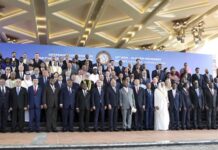Ukrainian President Volodymyr Zelensky announced that his government is prepared to discuss a neutral status as part of a peace deal with a guarantee from a third party, and such a deal should be put to a referendum, during an interview on Sunday. But Chinese observers pointed out referendums can hardly solve the sticking points in the conflicts when Ukraine and Russia are entering another round of talks.
The next round of talks will be held in Turkey starting Tuesday, media reported.
According to France24, in the interview, Zelensky also said that Ukraine is willing to compromise over the status of the eastern Donbass region – the primary target of Russian military operations and one of the most difficult topics in Russia-Ukraine negotiations.
The same day, Kiev’s chief of the defense intelligence Kyrylo Budanov said in a statement on social media that Russia is approaching capital slowly and is believed to have been creating de facto separation of the country across the occupation line.
Observers pointed out the two sides’ understandings of neutrality appeared to be very different, and referendums, be it for Ukrainians over the country’s neutral stance or for Donbass over its position between the two parts in conflict, have a slim chance of settling the problem.
Zhang Hong, an Eastern European studies expert at the Chinese Academy of Social Sciences in Beijing, told the Global Times on Monday that it is widely believed Ukraine’s compromise over the Donbass region would be small.
Zelensky reiterated on Sunday that “Our priorities in the negotiations [with Russia] are known: sovereignty, territorial integrity of Ukraine are beyond doubt,” in his nightly video address.
He also warned that Lugansk’s upcoming referendum to join Russia will have no legal basis. In 2014, the Crimean people voted to join Russia. It is widely believed that a referendum in Lugansk or Donetsk will lead to the Crimea scenario.
Ukraine’s position has been changing – from open to negotiations with Russia, to a firm stance on the Donbass region, then to requirements of a third party’s military guarantee, to saying the Donbass region issue is negotiable.
Cui Heng, an assistant research fellow at the Center for Russian Studies of East China Normal University, told the Global Times on Monday that a referendum could be Zelensky’s tactic.
If the negotiations are unfavorable for Ukraine, Zelensky could use the referendum to negate items concerning the neutrality agreed during the talks, Cui said .
Echoing Cui, Zhang said Russia and Ukraine have expressed willingness to continue talks, but whether Ukraine’s stance can meet the expectations of Moscow remains unclear. Kiev is carefully navigating through the situation, being ambiguous in rhetoric so that it can jump back and forth in the talks.
Calling a referendum on a neutrality plan does no good to proceeding with the stalled negotiations when the two sides have a wide gap in their understandings of neutrality, experts said, adding that a referendum, a mechanism meant for democracy, has been abused in the West in many cases, creating more or chronic trouble rather than solving problems.
Over the neutrality issue, observers agreed there is room for negotiations and the possibility of yielding results, but who is willing to be the third party to guarantee Ukraine’s security and who does Zelensky want?
Cui Hongjian, director of the Department of European Studies at the China Institute of International Studies, told the Global Times that Ukraine’s “compromise” is the result of its adjustment in strategic goals.
After realizing it is unrealistic for Ukraine to join NATO or EU, the country is making efforts to continue talks with Russia, Cui Hongjian said.
The expert said an ideal scenario for Ukraine would be to return to the Minsk Agreements to discuss the high-level autonomy of Donetsk and Lugansk.
Russia is going to focus on neutrality while ensuring the military creates conditions for the neutrality, Cui Hongjian believes.
Zelensky has been talking with the UK, France and Germany, hoping they could provide international guarantees, based on which Ukraine could promise not to join NATO along with other terms of neutrality.
The plan is negotiable, but Zhang pointed out the US and EU prioritize “making themselves safe” and the prospect was not optimistic. “Even if both sides step toward each other, their differences remain huge.”
Global Times.





